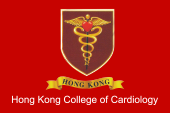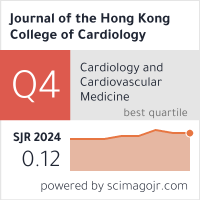Abstract
Background
Cardiogenic shock complicating acute myocardial infarction (AMI-CS) carries high inhospital mortality across decades of advancement in modern revascularization strategies, intensive care management, and mechanical circulatory support devices. The predictors of outcomes in AMI-CS patients have not been fully elucidated in this region.
Methods
This retrospective single-center observational study examined all patients who underwent percutaneous coronary intervention for acute myocardial infarction complicated by cardiogenic shock at Princess Margaret Hospital between March 1, 2012 to March 1, 2020. Baseline characteristics including demographics, medical comorbidities, laboratory data, interventional procedures, and patient outcomes were tabulated. The primary outcome measured was 30-day mortality; secondary outcomes including major bleeding, intracranial hemorrhage, need of renal replacement therapy (RRT) were analyzed, and their respective incidences were presented.
Results
Of the 190 patients analyzed, 30-day mortality among AMI-CS patients was 29%, and 1-year mortality was 39.5%. Risk factors significantly associated with 30-day mortality included age (ORadj 1.05, P = 0.039), history of cerebrovascular disease (ORadj 8.24, P = 0.004), cardiac arrest at presentation (ORadj 2.95, P = 0.046), peak troponin level (ORadj 1.003, P = 0.019), use of adrenaline (ORadj 3.49, P = 0.018), and mechanical ventilation (ORadj 5.14, P = 0.004); meanwhile office hour admission was strongly associated with lower risk of 30-day mortality (ORadj = 0.22, P = 0.002).
Conclusion
This observational study described the characteristics of AMI-CS patients receiving coronary intervention at Princess Margaret Hospital. Future studies may provide more insights into the optimal management strategies of AMI-CS patients.
Recommended Citation
Wong Chun Kit, Predictors Of Outcomes In Acute Myocardial Infarction Complicated By Cardiogenic Shock In A Regional Hospital Journal of the Hong Kong College of Cardiology 2024;31(3) https://doi.org/10.55503/2790-6744.1535
Creative Commons License

This work is licensed under a Creative Commons Attribution-Noncommercial-No Derivative Works 4.0 License.



